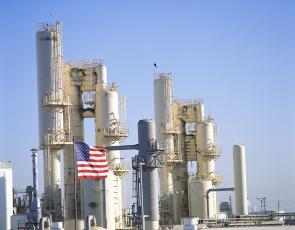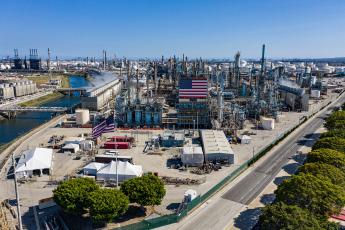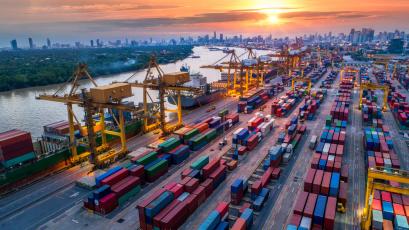WASHINGTON, D.C. — American Fuel & Petrochemical Manufacturers (AFPM) President and CEO Chet Thompson issued the following statement addressing the potential impact of tariffs levied on crude oil and refined products from Canada and Mexico:
“American refiners depend on crude oil from Canada and Mexico to produce the affordable, reliable fuels consumers count on every day. Therefore, we would hope any future tariffs would exclude these critical feedstocks and refined products.”
Additional information about the U.S. refining kit:
- U.S. refining strength/stats: The United States is the world’s number one producer of crude oil, natural gas and refined products.
- The United States needs imports, volumetrically and to access fit-for-purpose crude:
- In terms of volume, U.S. refining capacity far exceeds U.S. upstream oil production. We refine more crude oil every day than the U.S. upstream produces, and we produce more fuel and refined products every day than the United States consumes.
- In terms of ‘fit-for-purpose-crude,’ most of our refineries were built prior to the U.S. shale boom when heavier, higher-sulfur crudes were more abundant. As a result, we have the biggest complex refining kit in the world—meaning we have more facilities and units than anywhere else capable of turning the toughest types of oil into consumer products like gasoline, diesel and jet fuel. Feeding a complex refinery light, sweet crude that it wasn’t designed for is inefficient and could sideline entire process units, leading to less gasoline, diesel and jet fuel production overall, and potentially threatening long-term refinery operations.
- We also need refined product imports. Even though we produce more refined products here at home than we consume, there are regions in the United States—California, the Northeast and parts of the Midwest—that don’t have sufficient pipeline capacity to rely solely on U.S. oil and refined products. Imports are the most economical way to feed those regional facilities and supply fuel to local consumers.
- How much do we depend on foreign v. U.S. crude? About 60% of the crude that runs through U.S. refineries comes from right here in the United States, and the average crude that we run is lighter and sweeter than in previous years, though still heavier than shale patch crude. Of the crude we import, most comes from Canada and Mexico, about 60% and 11%, respectively. In the Midwest (PADD 2), Canadian crude accounts for an even larger share of total refinery throughput (about 65% of total crude runs, meaning Canadian crude is the #1 feedstock for Midwest refiners). There is no easy, fit-for-purpose replacement for this crude oil.
- How would tariffs impact the price of fuel? Crude oil is to refineries what flour is to bakeries. It’s our number one feedstock and input cost. If those feedstocks were to become significantly more expensive, so too would the overall cost of making fuel here in the United States. In regions like PADD 2, that have limited connectivity to U.S. crude oil and refined product pipelines, tariffs could have an especially hard impact—sharply increasing operating costs and potentially threatening refinery viability while simultaneously eroding U.S. energy security and driving up dependence on fuel imports from overseas. Tariffs applied to North American crude oil and refined products will not help our industry compete, nor will they support U.S. energy dominance and affordability for consumers.
- Additional thoughts:
- Our view on why access to the global market is essential for refiners: https://www.afpm.org/newsroom/blog/role-us-refiners-global-market.
- Our perspective on the potential for tariffs to impact petrochemicals: A Petrochemical Boom Could Go Bust with More Trade Tariffs | American Fuel & Petrochemical Manufacturers (afpm.org)
The American Fuel & Petrochemical Manufacturers (AFPM) is the leading trade association representing the makers of the fuels that keep us moving, the petrochemicals that are the essential building blocks for modern life, and the midstream companies that get our feedstocks and products where they need to go. We make the products that make life better, safer and more sustainable — we make progress.


